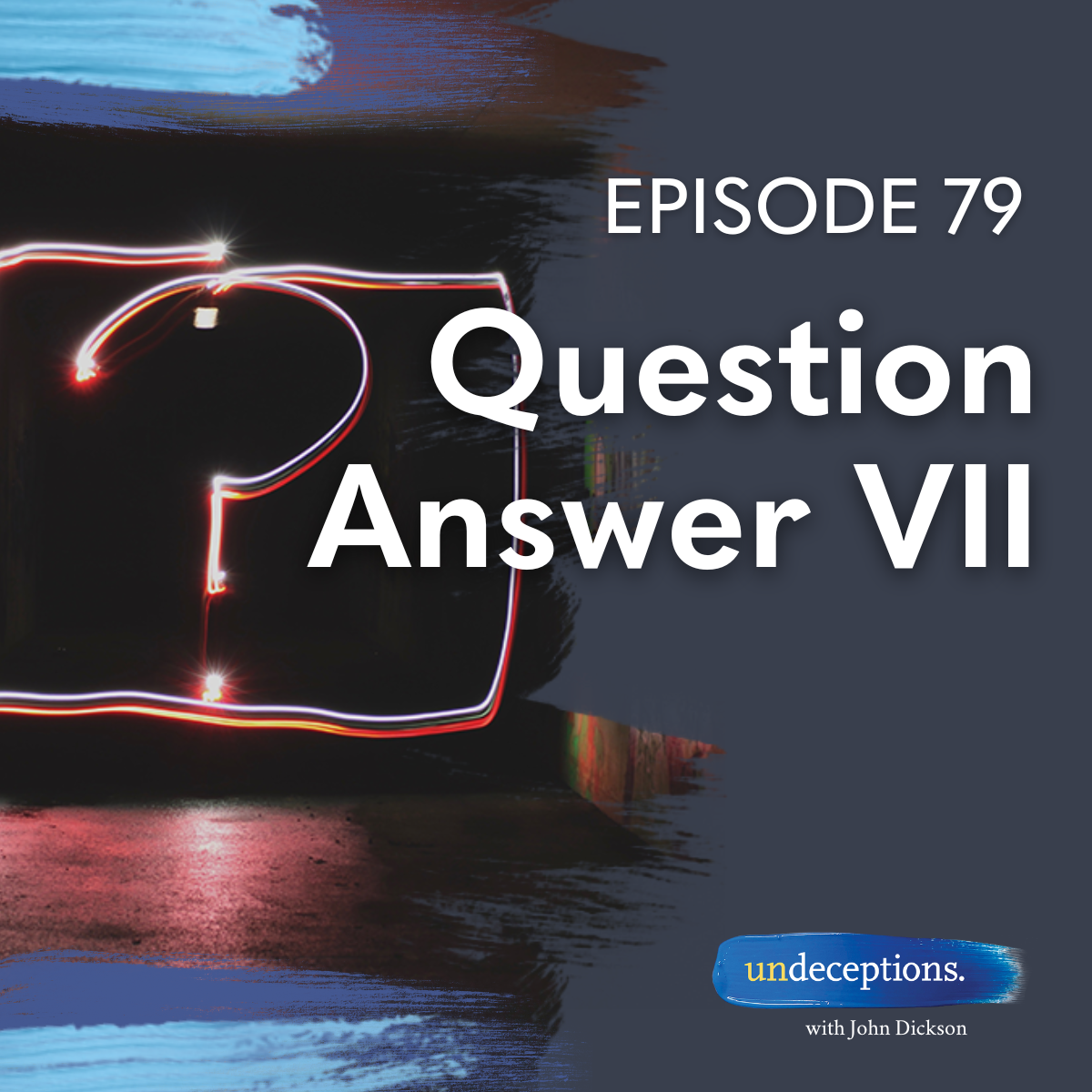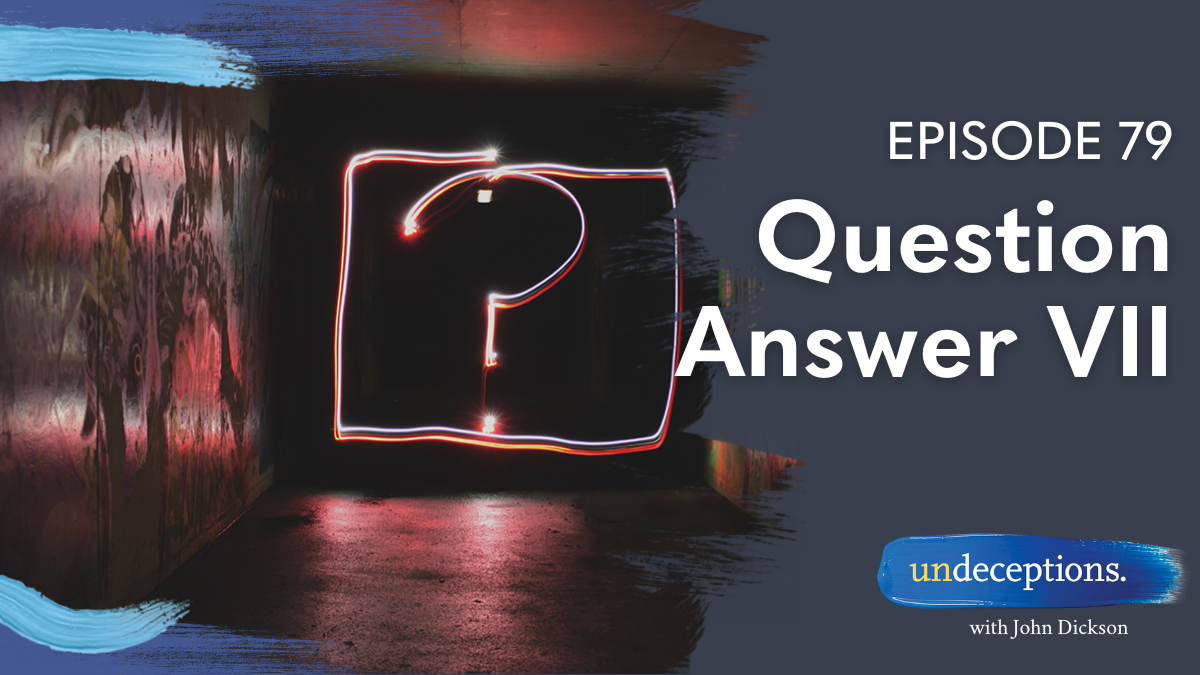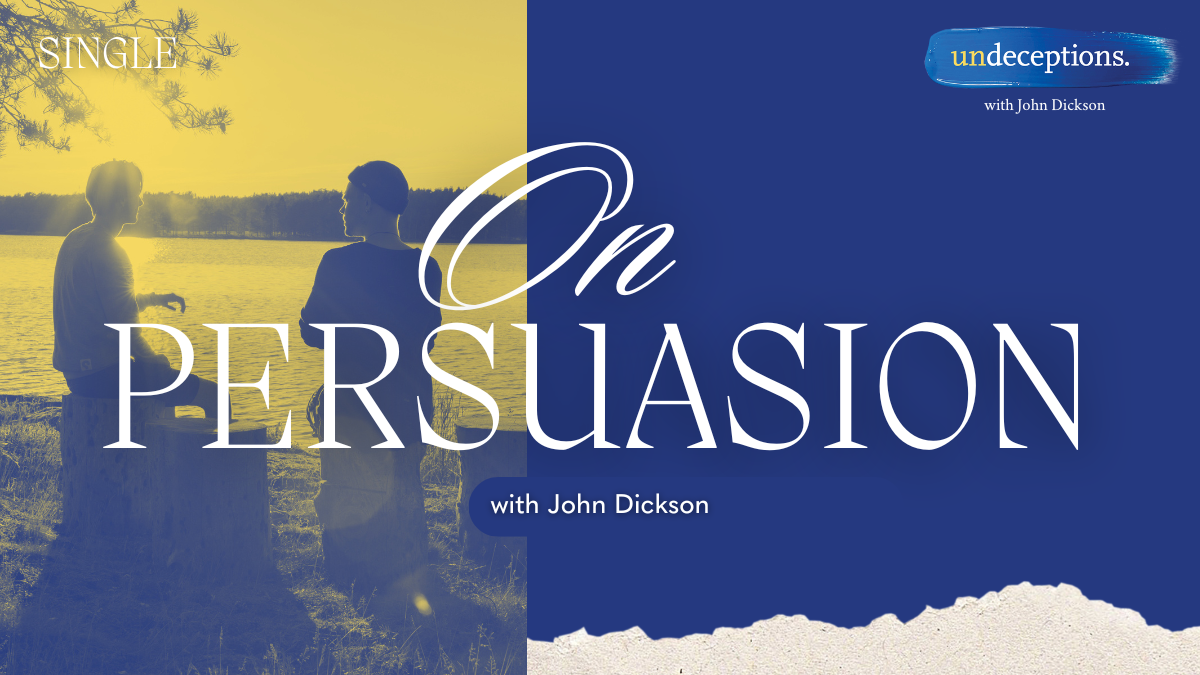
It’s our seasonal Q&A episode and there are actually quite a few curly questions about the future of the universe, heaven, as well as plenty of other questions about a bewildering range of topics, some of which push John to the edge of what he knows–perhaps beyond!
Links
Download a transcript of this episode here
This episode was sponsored by Zondervan’s new book Karl Barth’s Church Dogmatics for Everyone, Volume 1—The Doctrine of the Word of God: A Step-by-Step Guide for Beginners and Pros by Marty Folsom.
Questions:
- If Revelation 21 says there’s going to be a new creation, then how do we know that sin won’t permeate the new creation as it has done with the current one?
- In the Kingdom Come episode, John asked whether there would be animals in the New Earth. But what about ecosystems, and specifically, food webs?As a brand new Christian with a long term interest in ecology, I find Christianity’s anti-death focus hard to accept. Death is absolutely essential both to the operation of ecosystems and to the evolution of species. It is fundamentally generative of vitality and dynamism. The Earth is materially finite. Critters must die and their molecules recycled, for any new life to ever come about. Likewise, for natural selection to take place, critters must die. That’s God’s created order and I marvel at it. To me it proclaims the glory of God (Psalm 19). Am I meant to instead see it as some faulty product of a Fall, that needs to be restored by the New Creation? I find that hard to swallow. It almost seems to echo the Platonist, anti-materialism that afflicts other philosophies and religions.
- John, loved the episode entitled Kingdom Come. Here is the question – dwelling on a new earth – when we think about cosmology – how far does the fall, the infection of sin go? Is the universe as we know it fallen? Is that fallenness seen in the limited lifespan of all the stars and planets we see in the night sky? When God created the sun, the stars – they were called “good”. Do they remain as “good”? If so, and I tend to think they do, what about the reality of their limited lifespan? The sun is consuming the fuel that makes it the sun. It was created that way. The Andromeda Galaxy is on a collision course with our Milky Way Galaxy. Stars have limited lifespans. One day the sun will darken. Does the Lord overturn everything? Puzzling to me when I think about living on the earth forever.
- One question friends have asked me, and I have issues answering, is how we manage to reconcile the Bible and the existence of dinosaurs and pre-historic man. The world accepts that dinosaurs were around millions of years ago while in the bible there is no mention of them and it does not present it possible that the world is millions of years old. In their mind, the existence of dinosaurs, pre-historic artefacts and fossils is proof that the bible cannot be taken seriously. I know that the bible is not a scientific manual, and to be honest I don’t know much (or anything really) about prehistoric matters at all – I am a bit at sea in trying to ponder on this one.
- In the Gospel of Luke, there are songs recorded for each of Mary (1:46-56), Zechariah (1:67-79) and Simeon (2:29-32). I believe that Luke (like the other gospel writers) is seeking to accurately record (or “write an orderly account” in his words) historical events about Jesus and his account is reliable history.So did Mary, Zechariah and Simeon actually sing these songs or is Luke taking some artistic licence? If he is taking licence, does that detract from the accuracy of his account? Or do you think it even matters?
- My 15 year old son is expressing his Christian faith in lots of different ways. But he’s also been dealing with doubts especially from his upbringing as a Christian. He feels a little like, given he’s grown up knowing about the Christian faith from a young age, he isn’t impartial enough to make his own decision about what he believes. I’ve given him books like A Sneaking Suspicion to read, and we’ve listened to Nabeel Qureshi and his ‘Seeking Allah, Finding Jesus‘. But the problem is that they are written from a Christian perspective. He wants to read a book from a non-Christian about this. I’d like to respect the kid’s approach to seeking the truth. But what book should I get him to read? Major issues of Christianity from a non-Christian perspective. I think what I’m looking for is the anti-John Dickson. A thoughtful, considerate thinker against Christianity.
- I’m struggling with the war in Ukraine. As a Christian, we’re meant to love everyone. But how do we love Vladimir Putin?
- What now, if we are being looking after one another and compassionate towards one another, regardless of their gender identity? Then what would the Bible say about those gender identities that are not with their birth gender intermarrying? What now? Is it classified as a homosexual relationship? Is the union valid in God’s eyes?
- I teach religion courses at College level in a secular environment, and I have many students who have been hurt by Christianity/Church/groups they believe are Christian. Any advice on how to be with someone who has experienced that hurt and perhaps be a part of their healing journey to a point where they may even get to a stage where they can put their trust in Jesus?
- I found your episode on refugees troubling as I felt that it left some of the key issues unresolved. In Australia the debate around refugees focuses mostly on how we treat refugees and asylum seekers who are not granted permanent protection in Australia. In the episode you talked about a christian response not necessarily being open borders but that it should involve significantly increasing the number of refugees Australia accepts. However, whenever we draw a line there will be people who will be turned away. So my question is do you think it is unchristian to turn away any refugee who wants to reside permanently in Australia ?
- If God knows everything, what’s the point of praying to him?
- Hearing John talk in a lot of episodes about the amazing sacrifice of Jesus dying for us, a question came to my mind that I have been thinking about for a long while: We often talk about the greatness of Jesus’ sacrifice for us by dying on the cross and how that’s the ultimate expression of love. But Jesus knew that he was going to be raised to life again, so was he really losing anything? A similar situation for Christians who die for their faith – it doesn’t feel that difficult of a sacrifice if you believe that you’re going to end up in a much better place (namely eternal life with Jesus) – it could almost be seen (as I know it has been in history) as escaping this messed up world. For me, I’ve felt the bigger demonstration of love would be dying permanently; the willingness to sacrifice your whole existence, no promise of resurrection, now THAT would be purely selfless, right?
- I’m wondering if there is anything that is (objectively) only found in the Christian religion? I have heard many preachers or amateur apologists say something like “only in Christianity does God become man” or “only Christianity has the concept of grace”. However I know at least the first one is not true as other religions have a story of (a) God becoming a man. Are there any things that only Christianity has?
Questions for our PLUS subscribers
- The Bible says that Israel is the chosen group by God to be a nation of priests, prophets, etc. And many speculate something special is in store for Israel. How is it that I worship a God that has chosen a specific people group to be above and beyond others? Isn’t this racist that we believe a group of people are special? If another religion held up a group of people as their chosen ones, that’s super uncomfortable for us isn’t it?
- Any ideas about how to share our faith with people who are seeking abortion, especially now that the laws in Australia mean you really can’t do that at the clinics anymore? What can we do to fight against abortion?
- In the episode on Constantine the Great (Episode 61), the most likely reason the emperor was initially converted to Christianity was a military success. But after Constantine’s death, why did the subsequent Roman emperors keep Christianity as the favoured religion rather than reverting back to the traditional Roman gods? Did they also believe Christian God will bring them military success or stability of their ruling, or are there other reasons?

Undeceptions Plus offers exclusive bonus content to members. By becoming an Undeceiver, you can unlock uncut interviews, extra question and answer sessions, and peeks behind our creative process as we put the shows together. We’d love to have you with us.














































